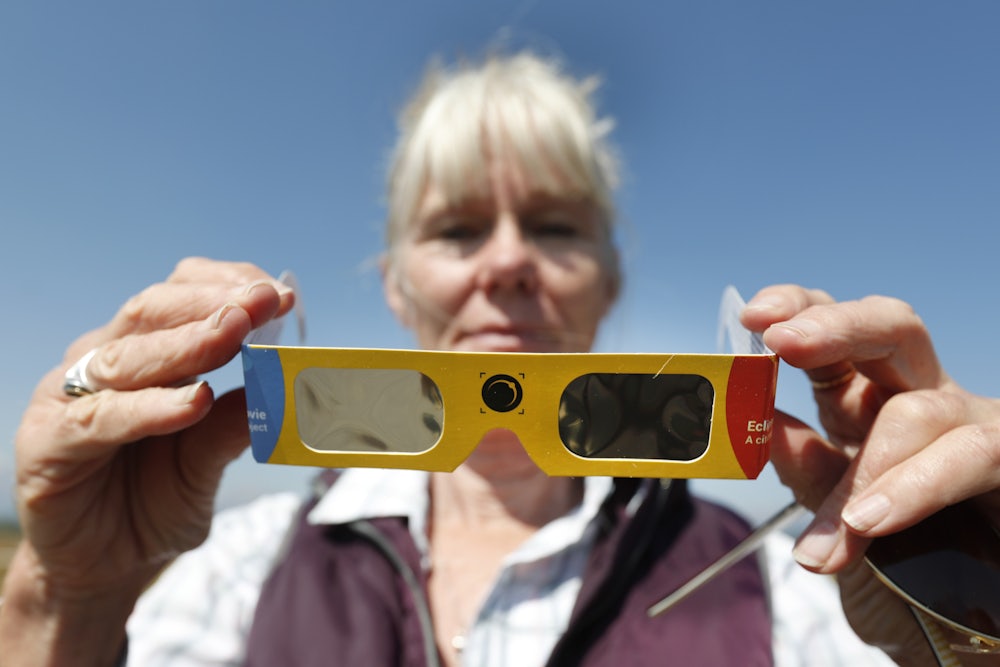A few hours before Monday’s total solar eclipse, I called former National Oceanic and Atmospheric Administration chief scientist Rick Spinrad to see how his viewing process was going.
Turns out he’d hit a snag. Wildfires were roaring across his home state of Oregon, and he realized that smoke could potentially cloud his view of the phenomenon. He went to access what’s known as a “nowcast,” or a satellite image describing current weather, cloud, smoke, and other conditions in his area. But the images he wanted were fuzzy. “I couldn’t get the resolution I wanted to determine where the best spot is,” he told me.
Spinrad explained that the ability to nowcast—to determine atmospheric conditions with high resolution—is important for viewing an eclipse. He also explained that President Donald Trump has proposed a $510 million cut to NOAA’s $2.3 billion satellite division. Spinrad said those cuts would likely prevent NOAA and NASA from improving earth-monitoring satellites so they have the high resolution necessary for perfect eclipse planning.
“The budget that came out of the Trump administration compromised a lot of these satellite capabilities, and certainly compromised the research that would go into the next generation of satellites,” he said. That would be unfortunate, because at least 11 more solar eclipses are expected to grace North America within the twenty-first century.
Congress hasn’t passed Trump’s budget for NOAA, and it’s unclear if they will. Indeed, a Senate committee recently rejected most of those proposed cuts to the agency. But as global climate change increases the risk of longer wildfire seasons and more intense individual burns, accurate, high-resolution nowcasts will help eclipse viewers find a view that isn’t obstructed.
And no, Spinrad says, satellite nowcasts are not just for satellite nerds like him. “Even if this eclipse were happening over India right now, if you had a cell phone, you have got the technology to pull out the images we’re talking about,” he said. “They’re becoming as common as GPS systems.” As for the newfound eclipse chasers today’s event will inspire, they can only hope that those nowcasts will remain common and crisp once Trump is out of office.
